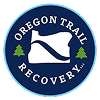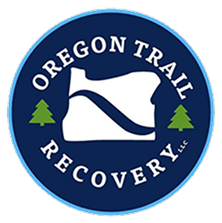Stress Management in Recovery: Finding the Right Balance

Key Takeaways
Some of the main takeaways from this article include:
- Stress in Recovery: Stress is a major challenge in addiction recovery, often intensified without substances, making stress management recovery skills essential for sobriety.
- Physical and Mental Impact: Stress causes symptoms like anxiety, headaches, and muscle tension, which can weaken immunity and increase relapse risk if not managed.
- Stress-Addiction Connection: Chronic stress alters brain pathways, increasing addiction vulnerability, especially in those with trauma, making stress management critical to break the cycle.
- Effective Techniques: Meditation, exercise, nutrition, journaling, and social support are proven stress management recovery methods to build resilience and reduce relapse risk.
- Oregon Trail Recovery’s Approach: Offers evidence-based therapies, adventure therapy, sober living, and individualized plans to address stress and support long-term sobriety.
Contact Oregon Trail Recovery’s admissions team to begin your addiction and stress management recovery journey today.
Disclaimer
Oregon Trail Recovery specializes in addiction recovery and trauma-informed care but is not a licensed mental health treatment provider. All services are designed to support substance use recovery and emotional well-being, not to provide psychiatric or clinical mental health treatment.
Stress Management Recovery: What You Need to Know
Recovery from addiction is a deeply personal journey, filled with both hope and hurdles. One of the most significant challenges people face is learning how to handle stress without turning back to old habits.
Stress management recovery isn’t just a helpful skill—it’s the backbone of long-term sobriety and overall well-being.
Integrating Stress Management Techniques
It’s important to know that stress doesn’t magically disappear once you begin recovery. In fact, for many, it can feel even more intense because they’re facing life’s ups and downs without the numbing effects of substances.
The good news? With the right stress management recovery techniques, you can build a foundation for a healthier, more balanced life.
Learning to manage stress in healthy ways takes patience and practice. However, with support, guidance, and a few practical strategies, you can develop skills that will serve you for years to come.
Our team at Oregon Trail Recovery can help you explore how to find true balance through stress management recovery options.
The Real Impact of Stress: What It Feels Like
Stress isn’t just a feeling—it’s a full-body experience. When you’re stressed, your heart races, your muscles tighten, and your breathing becomes shallow. Your mind might spin with worries, making it hard to focus or relax.
Some more common symptoms of stress include:
- Feeling anxious or irritable
- Trouble sleeping (or sleeping too much)
- Headaches and stomach issues
- Muscle tension
- Changes in appetite (eating more or less than usual)
Chronic stress can even weaken your immune system, making you more likely to get sick—which, in turn, adds even more stress. It’s a tough cycle, but one that can be broken with the right approach.

How Can Stress Lead to Addiction?
Stress and addiction are closely linked. When life feels overwhelming, many people look for ways to escape or numb their feelings. Substances often seem like a quick fix, but they end up making things worse in the long run.
Research shows that chronic stress actually changes how your brain works, making you more vulnerable to developing substance use disorder (SUD). When stress becomes too much, your brain craves anything that might bring relief—including drugs or alcohol.1
Managing stress addiction patterns is crucial, as stress is one of the top triggers for relapse. Many people with substance use disorders also face extra stressors, like financial worries or damaged relationships.2
Other Factors That Affect Stress and Addiction
Early life trauma and chronic stress can significantly raise the risk of addiction. In fact, people who have experienced childhood abuse, neglect, or other traumatic events are more likely to struggle with substance use later in life.3
That’s why many stress management recovery programs address past trauma as part of treatment.
Learning healthy stress relief sobriety techniques, along with calm techniques for healing, can help rewire these pathways, giving you better tools for coping with life’s challenges.
Eye-Opening Statistics: Stress and Addiction
The numbers around stress and addiction are striking. A 2023 survey revealed about 25% of adults report high levels of daily stress—a number that drives addiction rates across the country.4
In Oregon, the situation is even more concerning. The state recently ranked 9th in the U.S. for suicide rates and also has some of the highest rates of methamphetamine and opioid use.5
But, there is hope. Studies show that people who use stress management recovery techniques can have lower relapse rates.6 Developing these skills isn’t just helpful—it’s essential for long-term recovery success.
Managing Stress: Proven Methods and Techniques
No single stress relieving method works for everyone. Effective stress management recovery usually involves using several techniques together.
Some of the most common ways for managing stress addiction symptoms include:
Meditation and Mindfulness
Meditation is one of the most effective calm techniques for recovery. Just a few minutes of daily meditation can lower anxiety and lift your mood, and mindfulness teaches you to focus on the present moment instead of worrying about the past or future.
Some common techniques in meditation include:
- Deep breathing: Try slow, deep breaths for several minutes when you feel stressed. This simple act can quickly calm your nervous system.
- Body scans and guided imagery: These practices help you relax physically and mentally, building resilience over time.
Regular meditation practice can actually change your brain structure, making you more resilient to stress and other negative symptoms over time.
Physical Exercise and Movement
Exercise is a natural stress reliever. It releases endorphins, which are your body’s feel-good chemicals, and reduces stress hormones like cortisol.
Some ways to integrate movement into your daily routine include:
- Walking, swimming, or dancing: Simple activities can be powerful stress management recovery tools.
- Yoga or stretching: Combines movement with mindfulness for double the benefit.
- Outdoor activities: Spending time in nature, like hiking or gardening, can reduce stress hormones and boost mental wellness.
You don’t need to be a fitness expert in order to experience benefits from physical activity. The key is finding activities you enjoy and can stick with.
Nutrition and Stress Management
What you eat has a big impact on how you handle stress, as a balanced diet supports your body’s ability to cope with challenges.
Some tips for how to integrate nutritional stress management help into your day-to-day life include:
- Eat regular, nutritious meals: Helps keep your blood sugar stable and prevents mood swings.
- Avoid caffeine, sugar, and processed foods: These can make anxiety worse.
- Choose foods rich in omega-3s, magnesium, and B vitamins: These nutrients help your body manage stress more effectively.
Managing stress addiction recovery often means changing your relationship with food. Also, don’t forget to stay hydrated—even mild dehydration can increase stress hormones and make you feel more anxious.
Journaling and Emotional Expression
Writing about your thoughts and feelings is a powerful stress management recovery tool. Journaling helps you process emotions and spot patterns in your stress responses.
Even if you don’t think writing is something you’d enjoy, it gives you a chance to work through multiple emotions.
Here are some tips to get started:
- Write daily: Just 10-15 minutes a day can help you gain perspective and reduce stress.
- Express difficult emotions: Journaling gives you a safe outlet, preventing stress from building up to overwhelming levels.
You don’t have to be a great writer; you just have to be honest with yourself (and nonjudgmental). The act of putting thoughts into words helps your brain process them more effectively.
Building Social Support Networks
Strong relationships are also essential for stress management recovery. Having people to talk to when you’re stressed can make all the difference.
Some ways to create your own social network include:
- Start small: Connect with one or two people who understand your recovery journey.
- Join support groups: These provide a safe space to share struggles and learn from others.
- Seek professional support: Therapists and counselors can teach you specific techniques for handling stress.
Helping others can also help you manage your own stress better.
Find Support Through Oregon Trail Recovery
Oregon Trail Recovery (OTR) recognizes that stress management recovery is an important component of lasting sobriety. Our comprehensive programs address stress through multiple evidence-based approaches, helping clients build strong coping skills.
Evidence-Based Therapies
There are many evidence-based therapy options we may integrate into your treatment to ensure your SUD and stress management recovery goes smoothly.
These may include:
- Cognitive Behavioral Therapy: Teaches you to identify and change negative thought patterns that contribute to stress and addiction.
- Dialectical Behavioral Therapy: Focuses on managing intense emotions and stress through skills like distress tolerance and emotion regulation.
- Seeking Safety Curriculum: Specifically designed for people with trauma and addiction, offering concrete strategies for managing stress addiction triggers.
Adventure Therapy and Experiential Learning
OTR’s adventure therapy program is unique. We integrate activities like hiking, fishing, and outdoor excursions to provide natural stress relief sobriety while building confidence and self-esteem.
Our multidisciplinary Oregon team also takes advantage of the state’s mountains, rivers, and forests for healing experiences not found in traditional settings.
Adventure therapy also helps clients build social connections, practicing stress management recovery skills in real-world situations.
Sober Living and Community Support
OTR’s sober living homes offer a supportive environment for practicing stress management recovery skills in daily life. We have live-in house managers who are always available to provide guidance.
Additionally, daily group meetings, therapy, and 12-step participation help reduce anxiety and provide predictable calm techniques.
Individualized Treatment Plans
No two stories are the same. Treatment should reflect that. With Oregon Trail Recovery, it does.
Our personalized approach is built around your unique needs, goals, and life experiences—helping you lay the groundwork for lasting recovery and meaningful healing.

SUD and Stress Management Recovery On Your Terms
If you or someone you love is struggling with addiction and stress, remember: help is available. Stress management recovery is a learnable skill set that can transform your life and support lasting sobriety.
Oregon Trail Recovery offers compassionate care that addresses both addiction and the underlying stress that often drives it. Our evidence-based approach combines proven therapies with innovative treatments like adventure therapy and sober living support.
Choose Recovery, Starting Today
The first step toward stress relief sobriety is often the hardest, but it’s also the most important. OTR’s admissions team is available 24/7 to answer your questions, verify your insurance, and help you understand your options.
We want to remind you: seeking help is a sign of strength. With the right support, you can learn to manage stress in healthy ways and maintain long-term sobriety.
Your recovery journey is unique, but you don’t have to walk it alone. Oregon Trail Recovery is here to provide the support, guidance, and evidence-based treatment you need to succeed.
Take that first step today—your future self will thank you.
Resources
- https://pmc.ncbi.nlm.nih.gov/articles/PMC2732004/
- https://pmc.ncbi.nlm.nih.gov/articles/PMC11324296/
- https://www.frontiersin.org/journals/psychiatry/articles/10.3389/fpsyt.2022.871459/full
- https://www.apa.org/news/press/releases/stress/2023/collective-trauma-recovery
- https://www.save.org/wp-content/uploads/2025/02/2023_Suicide_Data_States_TOY.pdf
- https://pmc.ncbi.nlm.nih.gov/articles/PMC6760383/







